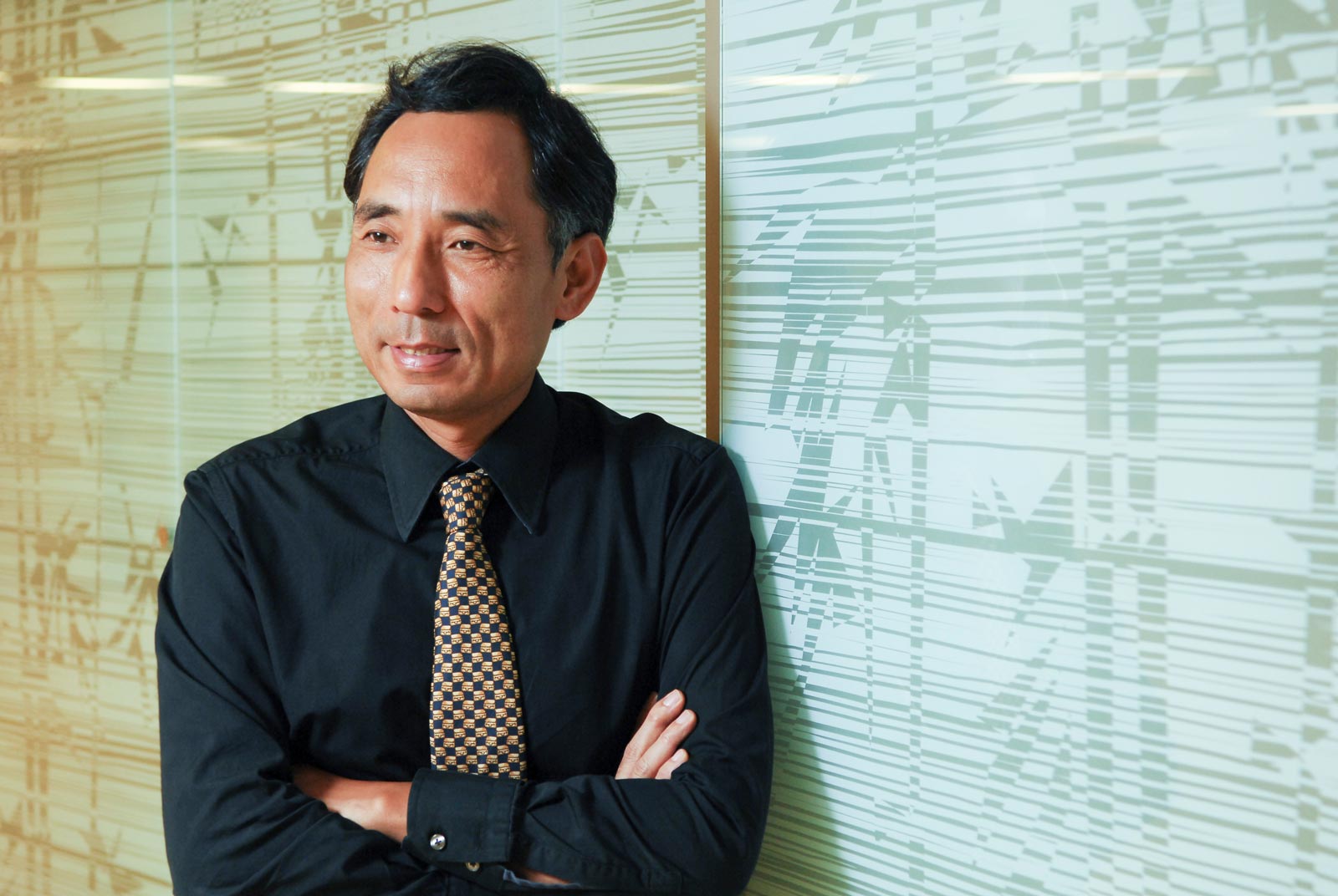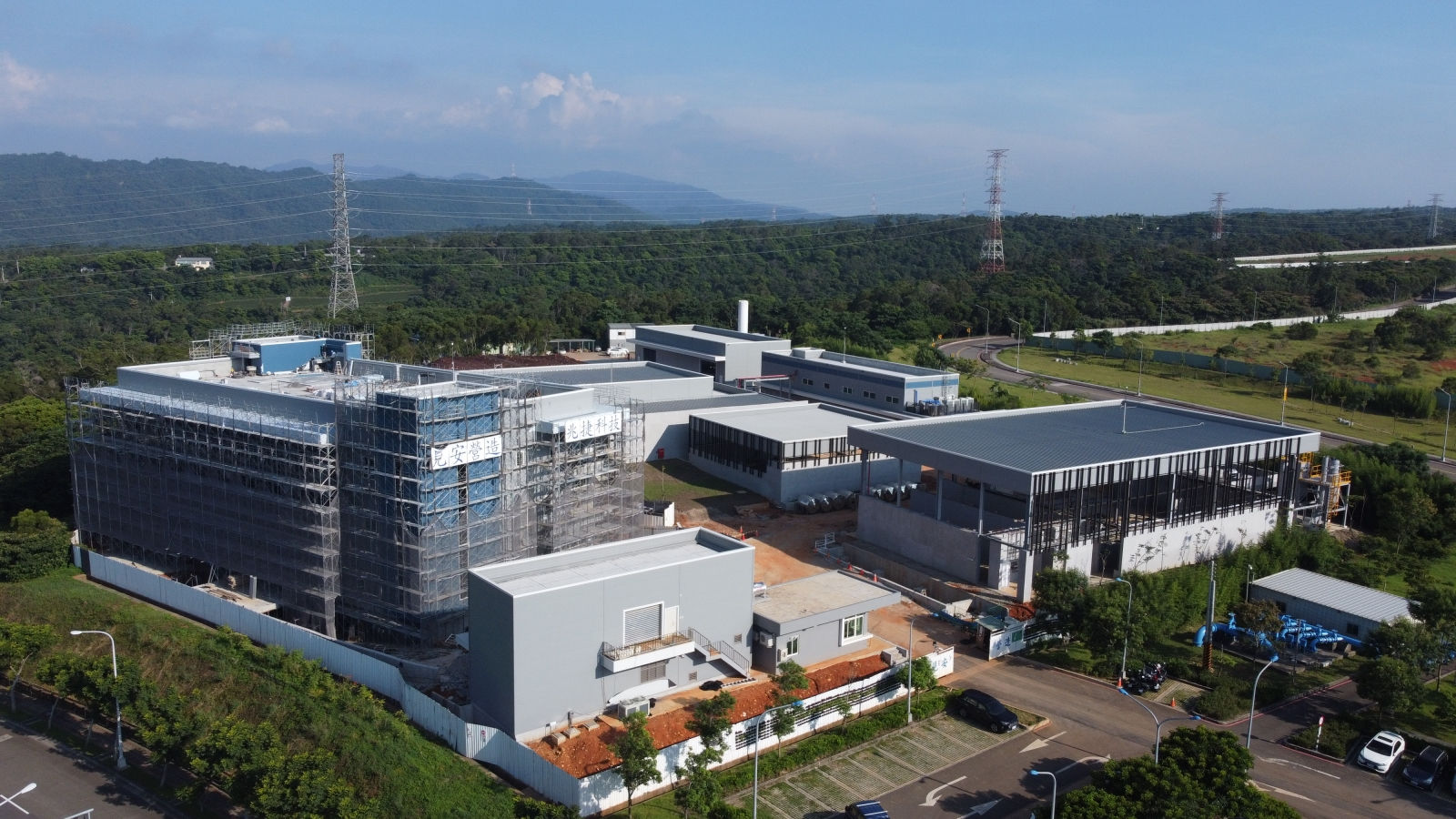Why is Taiwan's 'Godfather of DRAM' investing in specialty gas?

Source:Kuo-Tai Liu
Three years ago, Taiwan's "Godfather of DRAM", Charles Kau, ended his contract with China's Tsinghua Unigroup and became chairman of IEMC. This man single-handedly fostered Taiwan's DRAM industry. Why is he so deeply involved in a small specialty semiconductor gas company that makes less than a billion dollars a year?
Views
Why is Taiwan's 'Godfather of DRAM' investing in specialty gas?
By Elaine HuangFrom CommonWealth Magazine (vol. 779 )
Charles Kau (高啟全), the "godfather" of Taiwan's DRAM industry, has not courted media attention since he stepped down as the global executive vice-president of China's Tsinghua Unigroup three years ago. But now, at age 70, the former president of Nanya Technology Corp. has announced a surprise career change: after over four decades in the semiconductor sector, he's returning to his roots in the chemical industry.
His new role is Chairman of Ion Electronic Materials Co. (兆捷科技; IEMC), a company that focuses on producing specialty gasses for the semiconductor industry. He heads an elite team, the who's who of the tech world: there's Eric Shih (施宣麟), son of Acer founder Stan Shih (施振榮), who came on-board as the investment advisor representing his family fortune; and there's former UMC Vice Chairman Sun Shih-wei (孫世偉), who joined as an independent director. But compared to the multi-billion concerns that Kau used to manage, IEMC is a small affair that barely makes a billion Taiwan dollars a year.
Why the fervent interest in gas?
"I'm a bold person who's not afraid to step out of his comfort zone," explains Kau.
Semiconductor's 'Godfather of DRAM' got his start in chemical engineering
Kau was born into a wealthy family that operated a coal-mining business in the Taipei area. While he was a student in the Department of Chemistry at National Taiwan University, his family did business with Chang Chun Group. He once rode in the car of co-founder and then-Chairman Suhon Lin (林書鴻) to go to his part-time job in a factory in Miaoli.
Kau continued his studies in the United States after graduating from university. He earned a Master's Degree in chemical engineering from North Carolina State University. During the Carter administration, an energy crisis was sweeping the globe. Kau collaborated with his professors to explore how natural gas, which can be used to generate electricity, could be produced from coal through vaporization. After completing his degree, Kau had a chance to work at a number of petroleum companies. Instead, he went to work at a tech company he'd neither heard of nor been in contact with in his student days: Fairchild Semiconductor in the Silicon Valley.
"Back then, petroleum companies paid much higher salaries, but I was curious," says Kau.
Fairchild Semiconductor is the stuff of legends in Silicon Valley. It produced the world's first commercially practical integrated circuit. The founders of AMD and Intel worked in this company.
His colleagues had PhDs in material physics and electrical engineering; in contrast, he had never even seen a semiconductor before. When he asked his department manager why he was hired, he was told that the company hired the best of the best from Harvard, Stanford, UC Berkeley, but the yield rates were still abysmal. "He wanted someone from a different background, to see if I could think outside the box and offer solutions to how to improve yield rates."
The yield rate never did improve significantly, and the department was ultimately disbanded. But Kau got a foot in the semiconductor industry. His fate was tied to the global semiconductor market.
Before returning to Taiwan, his last position was with Intel.
In 1987, Kau joined TSMC. At the time, a Taiwanese company paid nothing close to what the Americans did, because their future was uncertain. "I did not fear leaving my comfort zone, because I needed to do so to discover new opportunities," he says.
Kau not only talked the talk, he walked the walk. After a stint as plant director at TSMC's six-inch wafer plant, he founded the electronics company Macronix (旺宏) with Miin Wu (吳敏求). When Winston Wong (王文洋), son of Formosa Plastics Group founder Wang Yung-ching (王永慶), founded Nanya Technology, he brought in Kau as executive vice-president.
Kau is renowned as the "Godfather of DRAM" because he brokered deals with Formosa Plastics to bail out Nanya and Inotera Memories multiple times when the industry was floundering in the aughts.
The industry was profoundly shocked when, at age 61, Kau left the DRAM sector to participate in China's initiative to develop its own semiconductor and chip industry.
Tsinghua Unigroup: 'I wanted to see'
"At the time, I was curious to see how things worked across the Strait. I wanted to see, so I signed a deal with Tsinghua Unigroup for five years. At the end of five years, they wanted me to stay on, but I came back," he said.
Kau underlines the main advantage of Taiwan's semiconductor industry: "It’s something that cannot be replaced. Making semiconductors is hard work, but Taiwanese companies are motivated to make better products and satisfy their customers, they take pride in this."
Since he's been back, Kau has been thinking: what else does Taiwan lack? What can he do to help?
"I think we lack a supply chain," after spending half of his life in the semiconductor industry, Kau came to this conclusion.
A localized supply chain is possible with a changed TSMC
Kau says that in the beginning, TSMC bought the highest-quality chemical products and mechanical equipment from around the world. But for geopolitical reasons, every country is trying to keep from extending its supply chains across too many borders. TSMC is also changing its mindset and nurturing its own localized supply chain. A shining example is when GlobalWafers bought shares in Taiwan Specialty Chemicals in 2018 so that it could secure the disilane that’s needed in the advanced manufacturing process in the semiconductor sector.
Three years ago, when Kau returned to Taiwan, IEMC contacted him and asked him to take on the role of Chairman.
Founded in 2016, IEMC specializes in ion implantation, clean etching, and laser gasses. It's an integral part of semiconductor and display supply chains.
IEMC CEO James Ku (顧大成) has experience working in companies that produce gasses for the electronics sector, such as Shihlien Fine Chemicals (實聯精密化學); he's an old hand in the field of specialty gas. IEMC only has 40 persons on its staff, but it's the first Taiwanese company to supply the small steel containers filled with the specialty gasses that are used in ion implantation, and it's secured a spot on TSMC's supply chain.
Professor Chung-Wen Lan (藍崇文) at the Department of Chemical Engineering at National Taiwan University makes this observation: in the past, tier one suppliers in the semiconductor sector were usually big-name international specialty gasses companies. But TSMC wants to find local suppliers. "Rising tension in geopolitics makes the risk of being cut off very tangible. Nurturing local suppliers is TSMC engaging in risk management." Lan also points out that the success story of Taiwan Specialty Chemicals was a watershed moment for the industry.
The advantage of a Taiwanese supply chain: localized R&D
IEMC imports gasses from foreign companies and processes them at its Hukou plant, which is just over a half-hour's drive away from the semiconductor cluster in Hsinchu Science Park. It engages in testing, purification, and injecting the gasses into steel containers with negative pressure. The bottles are then delivered to the semiconductor foundries. Because these are dangerous toxic gasses, IEMC's products must pass the certification processes of major IC foundries.
The way Kau sees it, IEMC is not necessarily replacing foreign gas suppliers, but it is the local partner for these international companies that wish to sell to Taiwan. IEMC can help them pass the certification processes established by Taiwanese semiconductor and display companies.
"Our most significant advantages include our location in the Science Park, our product quality and delivery reliability, and our eagerness to collaborate in R&D with our clients," says Ku. IEMC is expanding its plant in Tongluo Science Park in Miaoli. The 23,000-square-meter area will support its phase two facilities.
 IEMC's plant construction site in Miaoli science park. (Source: IEMC)
IEMC's plant construction site in Miaoli science park. (Source: IEMC)
Localized R&D is one of the benefits of a Taiwanese supply chain. Ku shares the story of a wafer manufacturer that needed a bespoke specialty gas of a certain concentration, to be used in a high-end manufacturing process. They got a hold of an American supplier and negotiated for four months. But the deal fell through and they wound up empty-handed.
Eventually, the client reached out to IEMC. It took only forty minutes for IEMC to send its representatives to the client's R&D center to have a face-to-face meeting with their engineers. It took just half a day to mix the bespoke gas and prep it for testing. All in all, the entire process took a day and a half.
"The key is to form a close working relationship with the semiconductor company's R&D engineers. You want to understand the materials and the purity of the gasses they need in the next phase of their advanced manufacturing process. That way, they'll be willing to test the gasses that you mixed for them," explains Kau.
A semiconductor chemical materials manufacturer points out that IEMC has zeroed in on the specialty gas packaging and purification business because it takes a long time to make back the investment in a large chemical plant that produces specialty gasses.
Kau may have the grand ambition to turn IEMC into the "biggest specialty gasses company in Asia". But long-term, stable operations are required to localize the specialty gas business.
Now, at 70, Kau has revisited his roots in chemical engineering, opening a new chapter in the saga of Taiwan's semiconductor supply chain.
Have you read?
- How Quaser turned a money-losing acquisition into a secret weapon
- The screw triggering a battle worth NT$200 billion
- What should Foxconn do about its money-losing Sakai plant?
Translated by Jack Chou
Uploaded by Ian Huang






